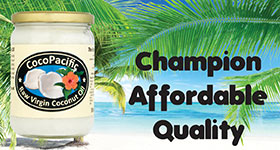|
|
|
Please click on the links below to read our articles. If you are interested in research findings, click here for links to research reports. For links to freefrom food products click here. Can taking probiotics help a histamine intolerance? Dr Joneja is not convinced. February 2016 Overview of the use of probiotics in paediatric allergy. Castellazzi et al. Italian Journal of Pediatrics 2013. The key to successful use of probiotics is to match the strain to the condition they are treating. Useful article on Natural Health Advisory. May 2013 www.intestinalgardener.co.uk A good blog for anyone interested in probiotcs and the science of gut bacteria. Can probiotics prevent food allergy? Interesting post on YesNoBananas blog. 01/13 Useful glossary of probiotic terms on the OptiBac site. November 2012 Two articles suggesting that probiotics may affect gut metabolism and might possible affect gene expression. 10/11 Practical use of Probiotics and Prebiotics. A useful article in the July 2011 Townsend Letter by Drs Stephen Olmstead, Dennis Meiss and Janet Ralston of Pro Thera Inc. Probiotics, Prebiotics and Fibre – The Three Bowel Musketeers! Micki Rose elaborates. October 2010 Babies need friendly bugs – John Scott explains why Probiotics – the 'friendly' bacteria: side-lined healers – John Scott reviews the current research. Febuary 2010 Probiotics and autism: reporting an experiment on autistic children and probiotics that was so successful it collapsed – John Scott 2007 First Published in 2007
NB Information on this site is not a substitute for medical advice and no liability can be assumed for its use.
|
Research Reports |
|
Long-term clinical and immunological effects of probiotic and peanut oral immunotherapy after treatment cessation: 4-year follow-up of a randomised, double-blind, placebo-controlled trial. August 2017 This study presents some very promising results showing long-term benefits of peanut oral immunotherapy, combined with a probiotic, for many patients. The original research demonstrated that combined probiotic and peanut immunotherapy induced sensitisation in a significant proportion of participants (using a randomised, double-blind, placebo-controlled trial). This follow-up study demonstrates that, 4 years after this intervention treatment ended, many participants were still experiencing positive immune system effects, such that they were able to safely consume peanuts. 67% of the treatment group had continued to eat peanuts, compared to just a single participant (4%) from the control group who did not receive the treatment. Whilst not all participants benefitted from this treatment, the high proportion of responders is very exciting and suggests more research is needed into this combined therapy, which has the potential to make a huge difference to the quality of life of many food allergy sufferers. Probiotics in Asthma and Allergy Prevention. July 2017 This review study outlines that probiotics are often used in an attempt to prevent the development of allergy but that there still a limited amount of evidence to back this up and much more research is required in this area. Probiotic influences on allergic responses in mice. May 2017 Protective effect of Bifidobacterium infantis CGMCC313-2 on ovalbumin-induced airway asthma and β-lactoglobulin-induced intestinal food allergy mouse models. March 2017 Dietary interventions for recurrent abdominal pain in childhood. March 2017 Review of the effects of fermented milk with healthy bacteria on gastrointestinal discomfort in the general adult population. Jan 2017 Pre- and probiotics for allergy prevention: time to revisit recommendations? Psychobiotics and the Manipulation of Bacteria–Gut–Brain Signals Immunomodulatory Effects of Different Lactic Acid Bacteria on Allergic Response and Its Relationship with In Vitro Properties. October 2016 Unexpected improvement in core autism spectrum disorder symptoms after long-term treatment with probiotics. A review of selection methods for immunomodulatory probiotic strains and the mechanism of action of probiotics in immune modulation. 2015 Systematic review: probiotics in the management of lower gastrointestinal symptoms in clinical practice – an evidence-based international guide. August 2013 Identifying anti-allergic probiotic strains. May 2013 Meta analysis of clinical trials finds that probiotic administration reduces the risk of atopic sensitization and decreases the total IgE level in children but may not reduce the risk of asthma/wheeze. August 2013 Cochrane Collaboration finds that probiotics are effective for preventing Clostridium difficile diarrhea often associated with antibiotic use. May 2013 The addition of a probiotic formula to triple H. pylori eradication therapy significantly decreased the frequency of epigastric pain, nausea, vomiting and diarrhea. October 2012 Prebiotics for intestinal failure improve gut – March 2012 Probiotics may contain hidden food allergens – September 2012 Selected probiotics may have a role in the prevention/management of IgE-associated allergic eczema. September 2012 Lactobacillus GG administered at the second trimester of pregnancy reduced the severity of maternal allergic disease, but not the incidence of childhood allergic sensitisation or allergic diseases. 09/12 Protective effect of probiotics shown to last at least two years – July 2012 Allergy protection from probiotics in breast milk varies for each child –June 2012 Probiotics prevent development of allergies –May2012 Two reports on probiotics and reduction of symptoms of atopic dermatitis –July 2011 Addition of lactose to hydrolysed infant formula for cow's milk allergic infants may boost their typically low levels of Bifidobacterium and Lactobacilli while reducing their typically high levels of Clostridium. March 2012 Probiotics in early life continue to lower the risk for eczema and rhinoconjunctivitis until at least 4 years of age.Febuary 2012 Probiotics are an effective treatment for antibiotic-related diarrhoea Four different studies suggest that probiotics may be effective as inflammaotry agents and in combating antibiotic-associated diarrhoea. October 2011 The anti-allergic effect of kefir Lactobacilli Eating probiotics can have a beneficial impact on the central nervous system, and depression Bacteria reduce allergy risk in children >A strain of probiotic may help treat ulcers caused by Helicobacter pylori Probiotics may prevent eczematous children developing asthma Probiotics for Crohns disease, colitis and colon cancer Probiotic formula reduces stress Maternal consumption of probiotics dramatically reduces the incidence of eczema in children – July 2010 Probiotic found in breast milk could help with digestive disorders Antibiotics depress immune system making way for secondary infections. Probiotics may help with chronic fatigue Probiotics used instead of antibiotics to treat disease Probiotics, prebiotics and enzymes: symposium report(April 2009 Probiotics may help irritable bowel Probiotic strain effective in improving irritable bowel syndrome symptoms 'Friendly' bacteria protect against Type 1 diabetes Probiotics may benefit Crohn's disease patients Benefits of probiotics reviewed Health benefits of probiotic could extend to the entire body according to new study What are probiotics? Probiotics may be an effective substitute for growth promoting antibiotics in pigs, giving us safer pork products Probiotic treatment may limit eczema in infants Probiotics may help in cases of colitis Combating infectious disease with probiotics Probiotics and autism Pre and probiotics and UC First Published September 2005 Click here for LINKS to manufacturers of nutrition and food supplements. |








